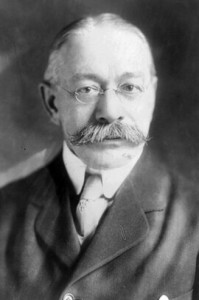The Law School’s Conference on the Wickersham Commission
 On October 4 and 5, 2012, the Law School held its Conference on America’s First National Crime Commission and the Federalization of Law Enforcement. The conference was the brain child of Dean Strang, a member of our adjunct faculty, who was assisted in its planning by Professor Michael O’Hear and me. Attracting large audiences of academics, lawyers, students, and the public, the conference featured lectures by historians, law professors, political scientists, and criminal justice experts.
On October 4 and 5, 2012, the Law School held its Conference on America’s First National Crime Commission and the Federalization of Law Enforcement. The conference was the brain child of Dean Strang, a member of our adjunct faculty, who was assisted in its planning by Professor Michael O’Hear and me. Attracting large audiences of academics, lawyers, students, and the public, the conference featured lectures by historians, law professors, political scientists, and criminal justice experts.
The conference began with Professor Frank Zimring’s (Berkeley, Law) lecture, “The Accident Crime Commission: Its Legacies and Lessons,” which was delivered under the auspices of the Law School’s Barrock lecture in criminal law. Professor Zimring provided historical insight into the composition, work, and legacy of the so-called Wickersham Commission. His lecture is summarized here.
On October 5 the conference continued with three panels. The first panel provided additional historical perspective on the Wickersham Commission. Delivering papers were James Calder (Texas-San Antonio, Political Science), who placed the Commission’s work in a paradigm of “brain” and “state.” Samuel Walker (Nebraska-Omaha, Criminology) provided an overview of President Herbert Hoover’s life, emphasizing how his support for the Commission was fully consistent with his role as an early twentieth-century Progressive. John M. Cooper, Jr., (Wisconsin, History) commented on the papers while offering additional insights into President Hoover’s progressivism.


 Following
Following